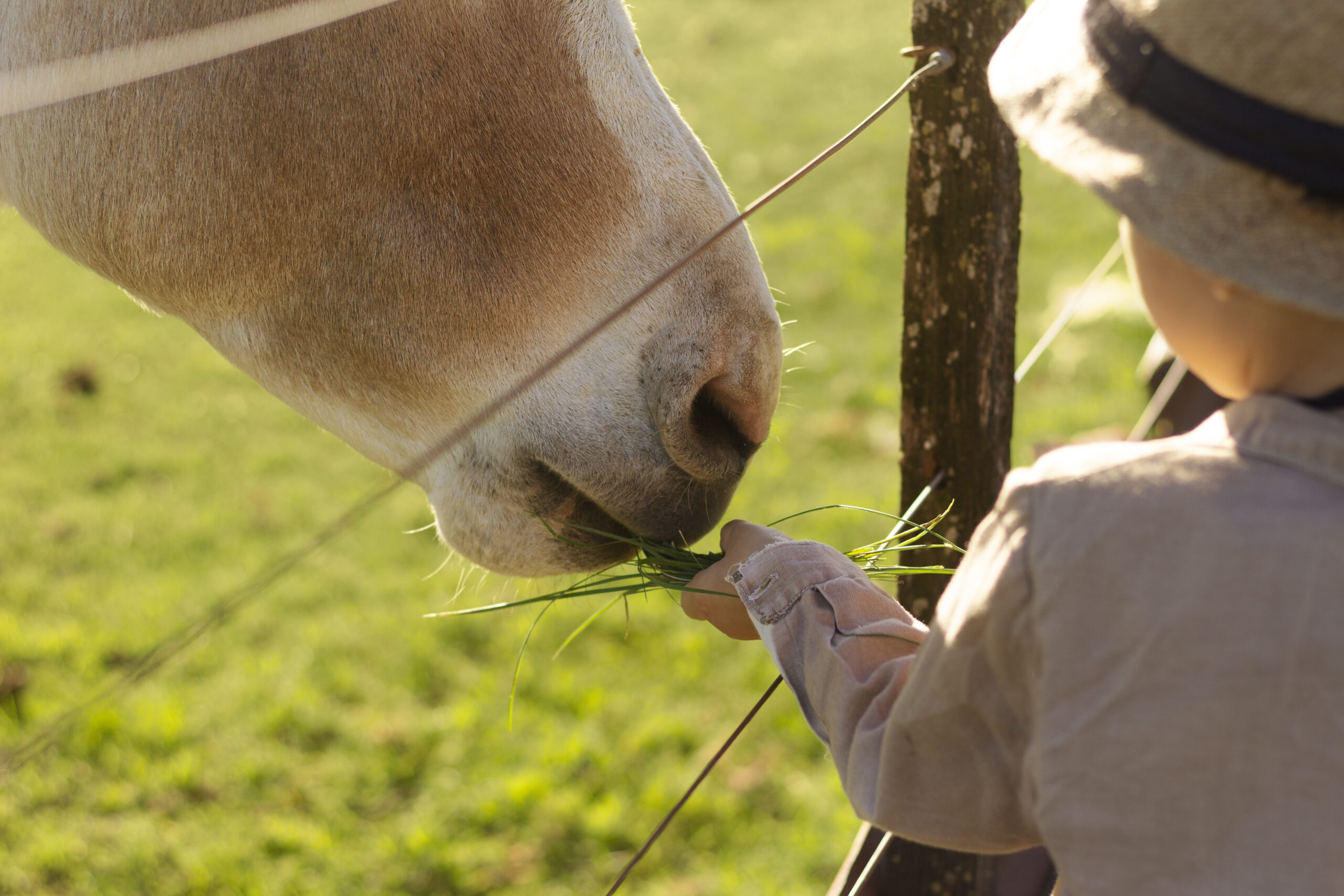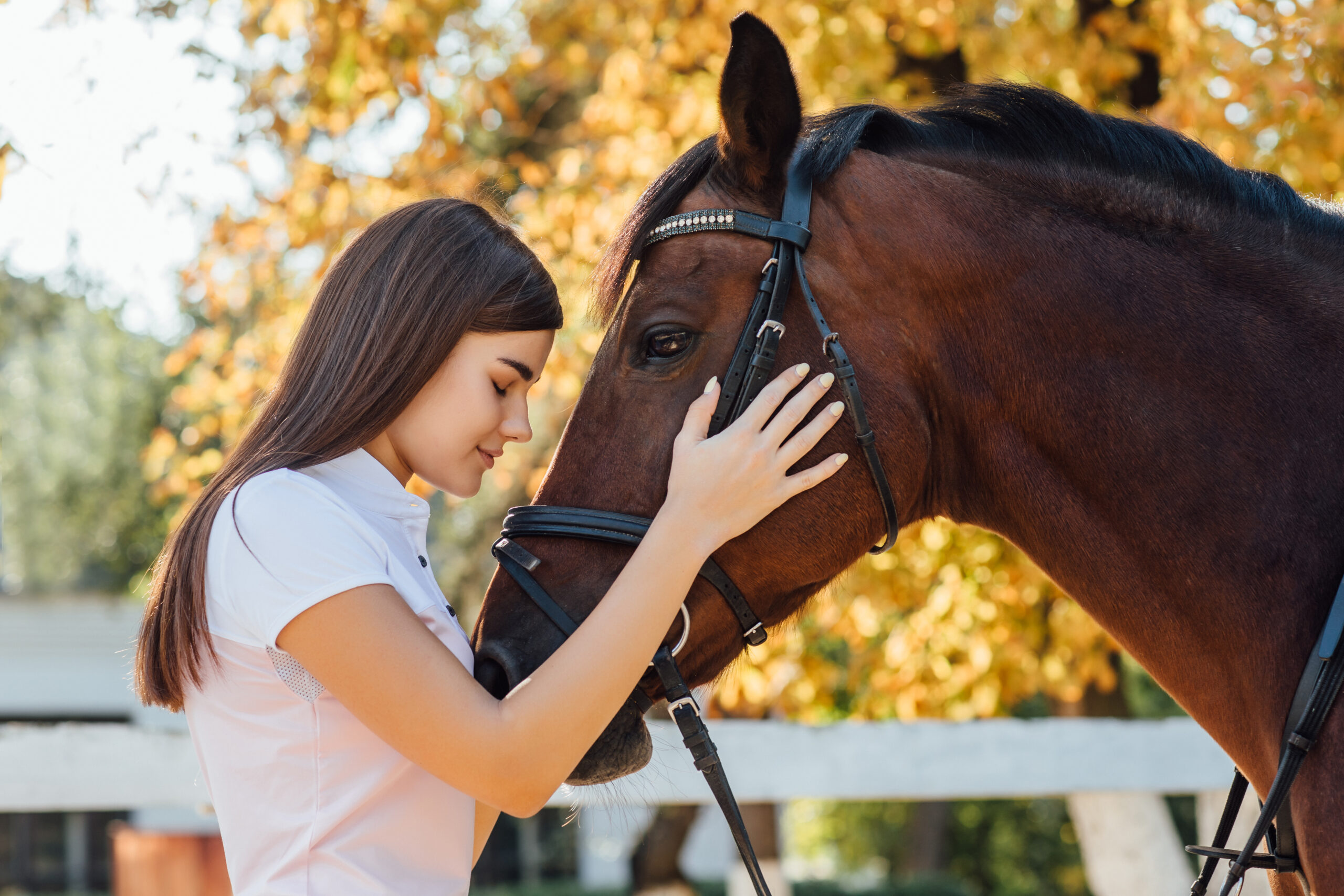Undoubtedly, having a horse under our care entails a great responsibility, as the care of horses involves a lot of time and budget, these animals need a lot of quality food, a large place to live in good conditions and a lot of physical activity.
So, caring for horses requires a lot more resources than taking care of a dog or cat, which is why in the following post we’ll talk about everything you need to keep your horse’s health at the optimum level. Take note!
How to care for your horse in Winter
If you’ve ever wondered whether horses are cold, the answer is yes. These animals need to be protected from cold temperatures so that their health is not at risk. So what does winter horse care involve?
First and foremost, our horses need to be protected from the cold, so a shelter with a roof is a good idea, especially if we are caring for sick or elderly horses. They will also appreciate being covered with a blanket to keep them warm.
Equally, looking after horses at this time of year requires that we keep this place spotlessly clean, warm and properly ventilated to prevent the growth of bacteria and fungus. On the other hand, it is important that they always have clean, warm water nearby. To prevent the water from freezing, heaters should be used.
It is important to note that horses hate to drink cold water, so this should be warm at all times, to prolong their hydration levels and prevent colic due to dehydration. In any case, what care should a horse take depending on its physical activity?
Physical exercise is important
Keeping our horses fit is essential for the preservation of their health, both physically and mentally. Regardless of the time of year, these animals must be exercised, of course, following specific guidelines. During the winter, we cannot forget about physical exercise, as horses are extremely warm-blooded and their body temperature does not vary much during this season.
Consequently, if you are wondering how to look after a horse, it should receive about 6 hours of physical activity per week if it is in good physical shape. Despite the cold, going out for a run and a walk has many benefits: it helps to maintain an ideal body temperature, maintains the horse’s musculature and gives it the opportunity to breathe fresh air.
With regard to physical exercise in the summer season, we must be careful, as the equine should not exert itself too much, especially during the hottest hours of the day. If it needs to train for a competition, it is best to do so in the early hours of the morning or when the sun begins to set. In this way, we will avoid heat stroke in horses, which is characterised by the following symptoms:
- Excessive sweating, which leads to dehydration of the animal.
- Intense and rapid breathing through the nose, which is not very effective in reducing heat.
- Higher than normal body temperature. It is advisable to keep a record of what is the regular temperature of our horse, with the help of a rectal thermometer. In this way, we will be able to detect any abnormal changes.
- Muscle cramps and tremors.
Now, if your horse is showing these symptoms, you must ask yourself, how do you hydrate a dehydrated horse? Ideally, contact your veterinarian for treatment to prevent the after-effects of heat stroke. While you are waiting for a specialist, keep your horse in the shade and give it showers with a hose. If the horse can drink water normally, you can give electrolytes in syringes. If not, it is better not to do so and continue the showers until an expert arrives.

Summer care for your horse
With the arrival of high temperatures, we must be meticulous with the care of our horses, as they tend to cope better with the winter. Therefore, one of the most important things is to provide them with enough clean water to compensate for the loss of fluids due to sweating.
The environment in which our horses are kept must be sufficiently ventilated to keep them cool and comfortable. Just as we seek air conditioning and shade in summer, these animals need the same.
In view of this, we must also pay attention to the presence of insects, which can cause harm to our animals, so you should have a good repellent nearby to keep them away.
Feed your horse correctly
We must not forget to mention the issue of feeding horses in winter, as these animals need to have good energy reserves so that they do not suffer a drop in their body temperature, which could make them ill. Therefore, an increase in feed portions is needed, even a few months before the onset of winter, so that our equine has already built up some energy reserves beforehand.
It is also important to add calorie components to the feed we feed the horse to increase its energy levels; corn oil can be one of them. On the other hand, we must also take care to feed a horse during the hottest time of the year so that its energy level is not depleted.
That is why we must always have a quality feed available, which must be rotated quickly, as the humidity produced by the heat reduces the nutritional properties of the feed. Forage is a good source of fibre, as long as it is dry, otherwise it can be full of mould.
When it comes to feeding racehorses, the amount of feed should be in accordance with their activity level so that they do not become unbalanced. In short, if you follow these tips throughout the year, you will have a happy and healthy equine. We hope this post has helped you to know how to look after your horse.



